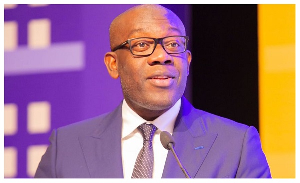Around Boston, handheld computers long ago became de rigueur among serious techies, top-notch executives and uber-yuppies. Now a Bay State group has a plan to send the devices to impoverished sections of rural Africa. 30 PDAs have already ben delivered by the group to Ghana.
But the personal digital assistants won't be used to schedule big business deals; instead Watertown's SatelLife Inc. has been packing dozens of PDAs full of downloaded medical texts, health references and guides for diagnosing all sorts of diseases for medical workers who lack access to up-to-date information.
SatelLife, which launched its own satellite in 1989 to help African health workers share medical data, said that by computerizing the process of dispersing and gathering health information, it can save lives.
``Our mission is to get health care information out to people who have nothing,'' said Holly Ladd, a self-described ``gadget queen'' who runs SatelLife from a set of nondescript offices behind a gas station.
Health care information moves slowly in Africa, which has very limited phone networks, and where Ladd said even the cost of paper can be prohibitive for doctors looking to gather medical data.
So in a two-pronged program, SatelLife's PDAs will be used not only to send health information to workers in the field, but to help them gather data about immunization habits.
SatelLife has put 30 PDAs in the hands of health workers in Ghana. They use the devices to log data from questionnaires administered to people waiting on line for immunizations.
Another 80 handheld units will go to doctors and health workers at universities in Kenya and Uganda who agree to gather health data, which can be instantly e-mailed to researchers.
In places where there is simply no access to the Internet, the process isn't so instant. Workers in such cases must wait for someone to visit their village with a laptop computer to collect their data.
Still, Dan Toole, a former UNICEF worker now employed by the PDA project's main financial backer, said he suspects PDAs will prove quicker and more cost effective than old methods. Those involved health workers fanning out with clipboards to poll people about health topics.
``When you're using pens and paper, you might get that feedback back into your hands two months to six months later,'' said Toole, chief operating officer of the Acumen Fund, a charitable group that put up $350,000 to launch the PDA project. ``The advantage of the PDA is that you can instantaneously aggregate the data.''
Ladd said the new tools will help African health workers catch up with their counterparts in the United States. She said SatelLife is also happy to accept donations of PDAs - new or used - that run on the Palm operating system.
``These are tools doctors in the U.S. use all the time,'' Ladd said. ``They don't have anything like this in Africa right now.''
General News of Wednesday, 26 December 2001
Source: Tom Kirchofer
Handhelds in Africa: Savior, not scheduler
Entertainment











